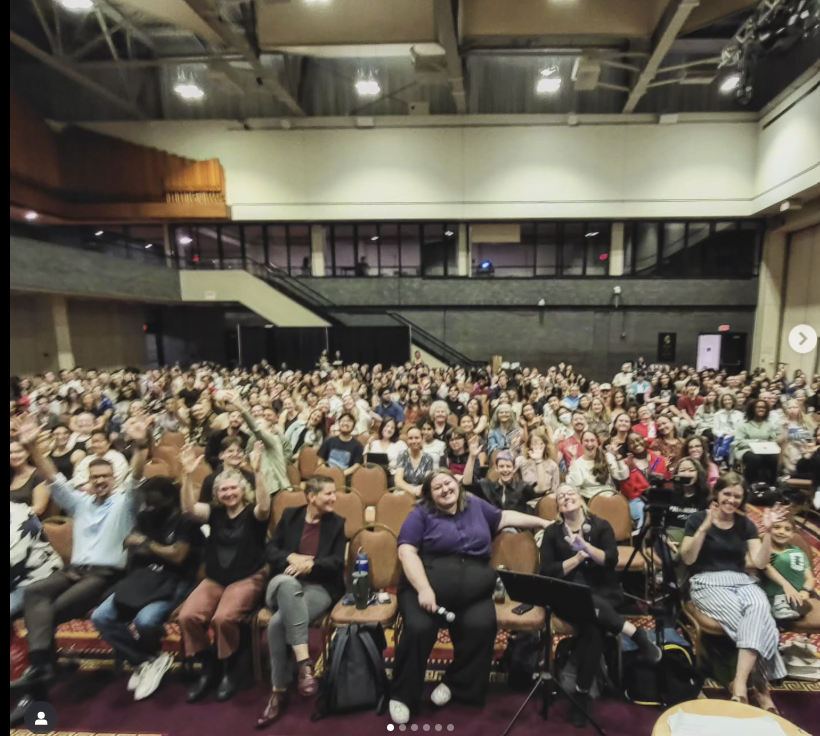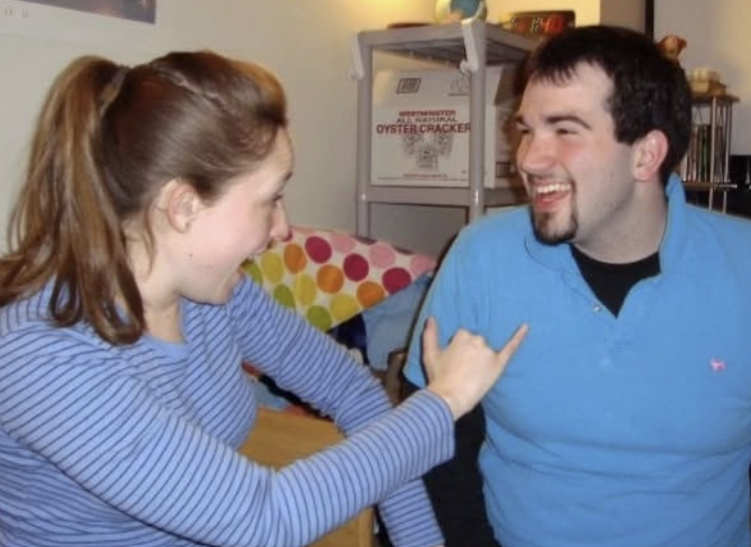What if I not?
Recently, I’ve been having what my little sister likes to call “nostalgia attacks,” periods of acute remembering, and feeling, for the past. I recently had the honor of speaking at Boston University’s Deaf World Lecture series, and that sent me down a college-days rabbit hole of sorts, returning to the city where both Z and I went to undergrad.


I wrapped copyedits on my forthcoming memoir (Save the date! 05/05/2026, if we’re still alive!), and if we’re being honest, memoir-writing is kind of one longform nostalgia attack, but receiving edits from someone otherwise uninvolved with the process feels a bit like dumping the project into a pressure cooker.
Maybe it’s just because lots of things are terrible right now. But because of one or all of these things, I found myself looking at photos from when I was a teenager in Croatia, staying with friends in a seaside village without internet or even a phone line. (There had been a phone line at some point, but I think the salt air ate it.)
One night we decided we were going to travel (somehow? by bus?) to a larger, neighboring town to go to the diskoteka. There were ten or 12 of us across 3 bedrooms, one toilet, one mirror, and no air conditioning, so beautification rituals for the club were a process. One of the girls, a high femme, was buckling under the pressure and definitely taking out on her boyfriend, who we’ll call V.
V was a soft-spoken, gentle and extremely tall man who’d been eager to practice his English in my general direction since I’d arrived. For a while, he was running around trying to help retrieve his girlfriend’s supplies, fasten her fasteners, etc. but when it became clear this was only bringing on more rage and demands, he eventually threw up his hands and shouted to the room, “WHAT IF I NOT!?”
I'm always a sucker for translanguaging, but this turn of phrase has stuck with me, partly, I think, because of V’s facial expression, a mix of defiant pride at pushing back on the spew of of demands, and also at having attempted it in English. The other part is just that it is fun to say. (Try it when you’re mad; it hits.)

When I consider what concretely it might be that tugs at the heartstrings when I think of that time in my life, it isn’t immediately obvious. We had exactly zero money, were living on top of one another, always slightly buzzed on rakija and a little bit hungry and very sweaty. Even though the internet back in the city was a sluggish dial-up, I remember being without it and phones and easy access to the outside world had still been a strange and cloistered feeling. More and more often now I think that’s also part of why it was good—unable to reach outward, engaging deeply with everyone and everything in our immediate corporeal vicinity became not only possible, but necessary.
This is true in some of the more obvious ways, like, if I could’ve stayed inside in the air conditioning, I probably would not have been jumping off a cliff into the sea. But it’s also true of the thousand other tiny mindless things—today if my kids ask for a song, I play it on the supercomputer in my pocket; if I have a question about nearly anything, I google it. That summer if we wanted music, we must’ve turned on the radio or sang it ourselves; if we wanted answers, we would’ve just had to keep wondering.
Given the state of the union right now, it’s tempting for the takeaway lesson here to be one of “opting out” in a privileged, misinterpretation-of-the-concept-of-self-care kind of way. Unfortunately, (while some people seem to think they can get away with it for the time being) I don’t think anyone in this country should be tuning out right now even though it would probably feel nice. Still, there’s a difference between tuning out and behaving as if our online presence counts as being present. So I guess the question is, what can you say What if I not to? Here’s a few of mine:
Not buying stuff I don’t need, even if it is cute or fun or in the holiday spirit.
Not accepting nihilism or a forced humorlessness as appropriate responses to authoritarianism. (More on this in an old newsletter here.)
Not fucking with ChatGPT, or fighting the internet Reply Guys who say shit like, “AI can now replace professors!”
Not automatically resharing everything that makes me panic from the endless crush of news, and (maybe more importantly) not buying into the argument that the amount of one’s reposts on a given subject is correlated to whether or how much one cares about that thing, or what efforts one is making offline.
Not despairing in every bad-faith think piece that rolls off the legacy media presses, even though they’re infuriating, even though those journalistic institutions once meant so much to me.
BUT, that’s only half the story. Because, like in that little town on the coast of the Adriatic, (forcible) opting-out of connection on an amorphous, abstract level with the wider world also meant doubling down on connecting with those in our midst. Here are some of the ways I’ve been trying to exist and be useful IRL lately:
Checking on elderly neighbors. Carrying stuff for them, getting their mail, that kind of thing.
Attending school board and local community meetings. Going to protests when possible, not as the thing, but as one of the things. And yes, writing vote reminder postcards and voting, still.
Donating books and time to library and local literacy initiatives.
Composting (it’s pretty fun actually!) and growing some shit.
Planning better so I can consciously buy stuff we need from small businesses instead of leaving it until the last minute and ordering from you-know-who.
Spreading info locally—making flyers, stickers and zines to share information who are not online. (There are many easily available printables related to folks’ rights with respect to ICE, for example.)
Visiting websites or social media pages for food banks to see what they actually need, and sharing what I can. Our local food bank has made it really easy breaking down exactly what pet supplies, hygiene, food, Thanksgiving, and bulk needs they have, and I’m betting many other places have these lists, too.
Volunteering to pack or deliver food, or share computer skills to help organizations make and distribute lists of needed items.
Donating cash to food banks and shelters when possible, because many organizations have wholesale deals and can get more food for their buck.
This one I haven’t done personally, but if you have a bigger employer, it’s worth checking to see if they have matching donation programs or paid time off volunteer days. Many big companies already have funds set aside for this.
All of these, but also for emergency homeless, domestic violence, and pet shelters.
My list doesn’t have to be—shouldn’t be—your list. We all have different skills, abilities, limitations, and desires. That’s cool! Do your things!
Biz
More book biz incoming shortly! In the meantime, if you're looking for curated news on the state of disability rights in the US, please visit Disability Rights Watch for the weekly update (we've been shadowbanned from instagram, but, see above, just as well).